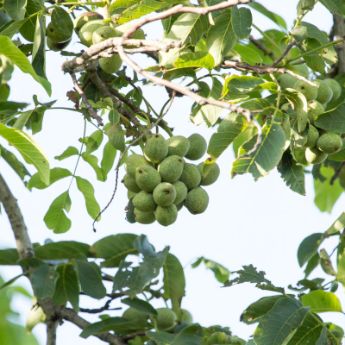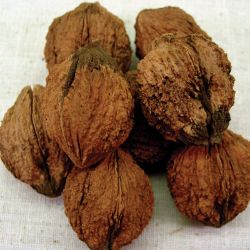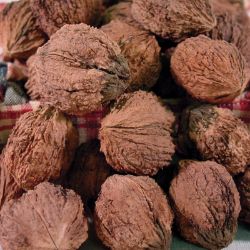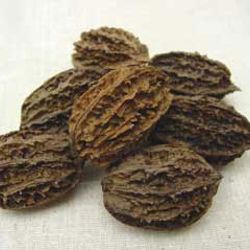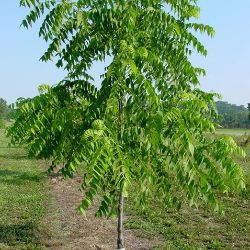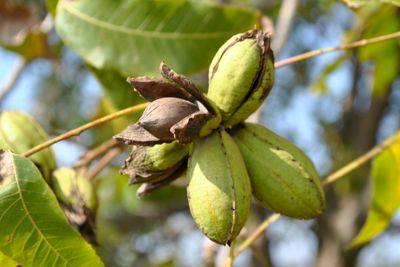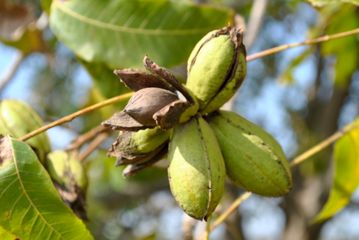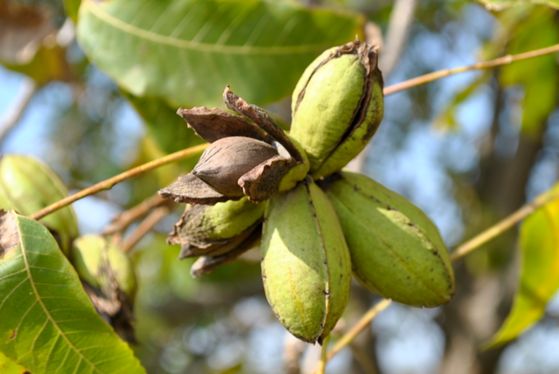Walnut Trees
Walnut Trees Buyer's Guide
Walnut trees are some of the easiest and most productive nut trees to grow at home. Plant a stately walnut tree in your landscape and save money with cooling summer shade and edible nut harvests. As the tree grows, it will become tall and majestic, making a gorgeous addition to any open space. The nuts you harvest are loaded with nutrients and minerals, and they can be enjoyed as snacks, in salads, or as tasty ingredients in cookies, cakes, breads and more. When you plant one of these trees in your yard, it will bring you the best of beauty and productivity. Our selection features:
- Black Walnut Trees (Juglans nigra) These varieties are known for excellent lumber and nutritious nuts, black walnut trees are also enjoyed as domestic shade trees.
- Butternut trees (Juglans cinerea) Also called ‘white walnut’, these trees bear mild-flavored nuts.
- English Walnut Trees (Juglans regia) The nuts from this fast-growing tree are delicately flavored and thin-shelled, making them easy to crack open and eat
- Heartnut trees (Juglans ailantifolia) Also called ‘Japanese walnut’, these trees thrive in a range of soils, and bear heart-shaped nuts high in protein.
To ensure your growing success and satisfaction, there are a few things to consider when you buy a walnut tree.
Zone Compatibility
Your climate plays an important role in whether a tree will produce nuts or even survive. Our walnut trees can be grown in many different climates, including many parts in the North, anywhere in the Midwest, and because of their heat tolerance, most areas in the South and West. Before ordering, make sure your selection’s recommended hardiness zone range includes your area.
Proper Pollination
Most of our walnut trees are self-pollinating, which is ideal if you have limited growing space. If you do have enough room, we always recommend planting another compatible variety for optimum production. For the trees that do require pollination, make sure you check our descriptions to see which pollinating varieties our experts recommend. Inadequate pollination for those varieties can be the reason why they produce poorly or don’t bear nuts at all.

